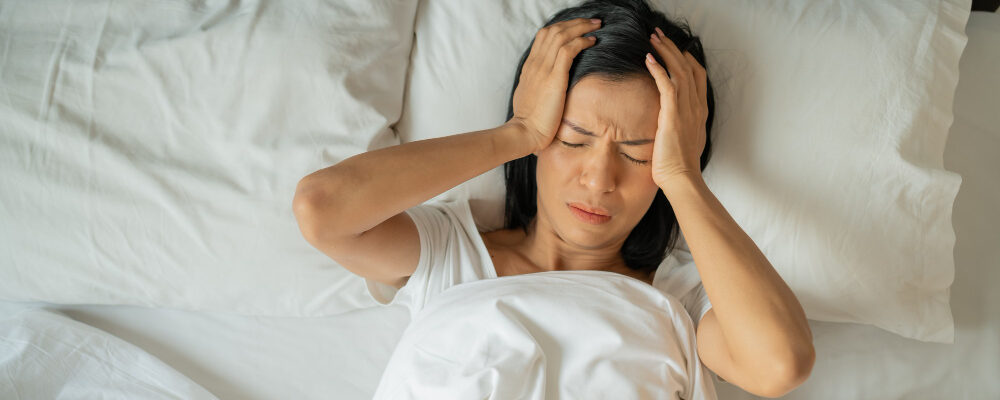Sleep Disorder
What are sleep disorders?
Sleep disorders are conditions that impair your sleep or prevent you from getting restful sleep and, as a result, can cause daytime sleepiness and other symptoms. Everyone can experience problems with sleep from time to time. However, you might have a sleep disorder if:
- You regularly experience difficulty sleeping.
- You are often tired during the day even though you slept for at least seven hours the night before.
- You have a reduced or impaired ability to perform regular daytime activities.
There are more than 100 million Americans of all ages who are not getting an adequate amount of sleep. Sleep is very important. Not getting enough sleep can have untoward consequences on school and work performance, interpersonal relationships, health and safety.
How common are sleep disorders?
About 70 million people in the United States suffer from sleep disorders.
How many types of sleep disorders are there?
There are approximately 80 different types of sleep disorders. The top ones are:
- Insomnia.
- Sleep apnea.
- Restless legs syndrome.
- Narcolepsy.
How much sleep is necessary?
Experts generally recommend that adults sleep at least seven to nine hours per night, although some people require more and others require less.
A recent National Sleep Foundation Sleep in America poll found that adults (ages 18-54) sleep an average of 6.4 hours per night on weekdays and 7.7 hours on weekends. The poll showed a downward trend in sleep time over the past several years. People sleeping less hours tend to use the internet at night or bring work home from the office.
The National Sleep Foundation also reported that older adults (age 55-84) average seven hours of sleep on weekdays and 7.1 hours on weekends. Sleep is most often disturbed by the need to use the bathroom and physical pain or discomfort in older adults.
A downward trend in sleep time has also been observed in children. Optimal sleep time varies by age. An earlier Sleep in America poll found a discrepancy between recommended and actual sleep time in children, with actual sleep time 1.5 to two hours less than recommended. Caffeine consumption caused a loss of three to five hours of sleep and having a television in the bedroom contributed to a loss of two hours of sleep each week in children.
What happens when a person doesn’t get enough sleep?
Not getting the proper amount or quality of sleep leads to more than just feeling tired. Sleepiness interferes with cognitive function, which can lead to learning disabilities in children, memory impairment in people of all ages, personality changes and depression.
People who are deprived of sleep experience difficulty making decisions, irritability, have problems with performance, and slower reaction times, placing them at risk for automobile and work-related accidents. Sleep loss can also adversely affect life by contributing to the development of obesity, diabetes and heart disease.
Who is more likely to have a sleep disorder?
Disorders associated with daytime sleepiness affect females more than males.

FAQs
What are the facilities available at the clinic?
The following facilities are available:
- Pulmonary function testing (Spirometry)
- Bronchoscopy
- EBUS
- Sleep studies (polysomnography)
- Thoracoscopy
- Lung cancer chemotherapy
I snore. Do I need to undergo a sleep study test?
It is not necessary that all persons who snore need to undergo a sleep study. There should be associated features to label it a disease. You should seek consultation from a sleep specialist in this case, who will screen you appropriately.
What will happen to my body if I sleep less?
Sleep is one of the key factors that determine the health of an individual. How one wakes up in the morning is a fair indicator whether one is getting a proper sleep or not. Therefore, if you have been snoozing your alarm too often, you might be damaging your own health. Experts believe that under normal circumstances, one should be able to wake up refreshed. And if you are not then you might be suffering from a sleep disorder. This can cause neurological changes in your body and can reduce the productivity at work. Moreover, in the short run it can cause memory problems and severe hormonal changes in your body.
Whatv is Pulmonary sleep test?
PFT measures how much air you can breathe in and out and how fast you can do it and how well your lungs are working to deliver oxygen to your blood. PFT is a painless test and a technician will ask you to take a deep breath and then blow as hard as you can into a tube connected to PFT machine.
PFT is the most important test for the diagnosis and management of COPD. PFT is similar to ECG of the lungs